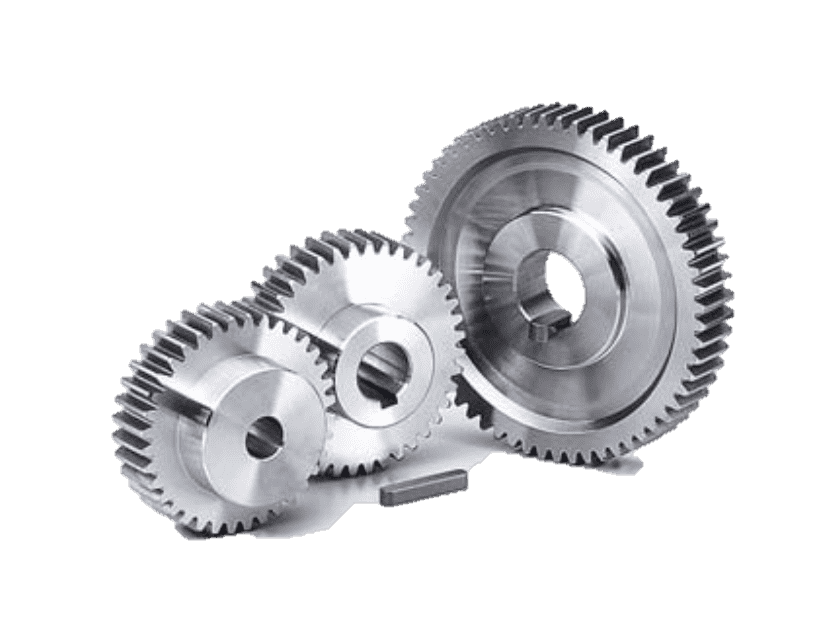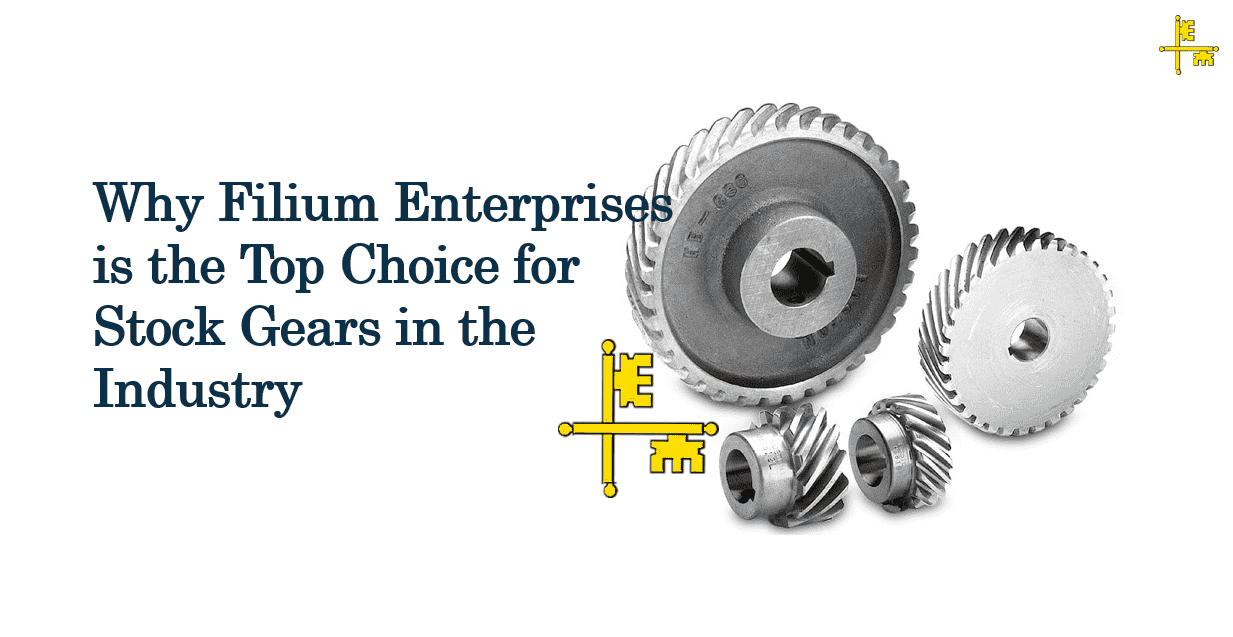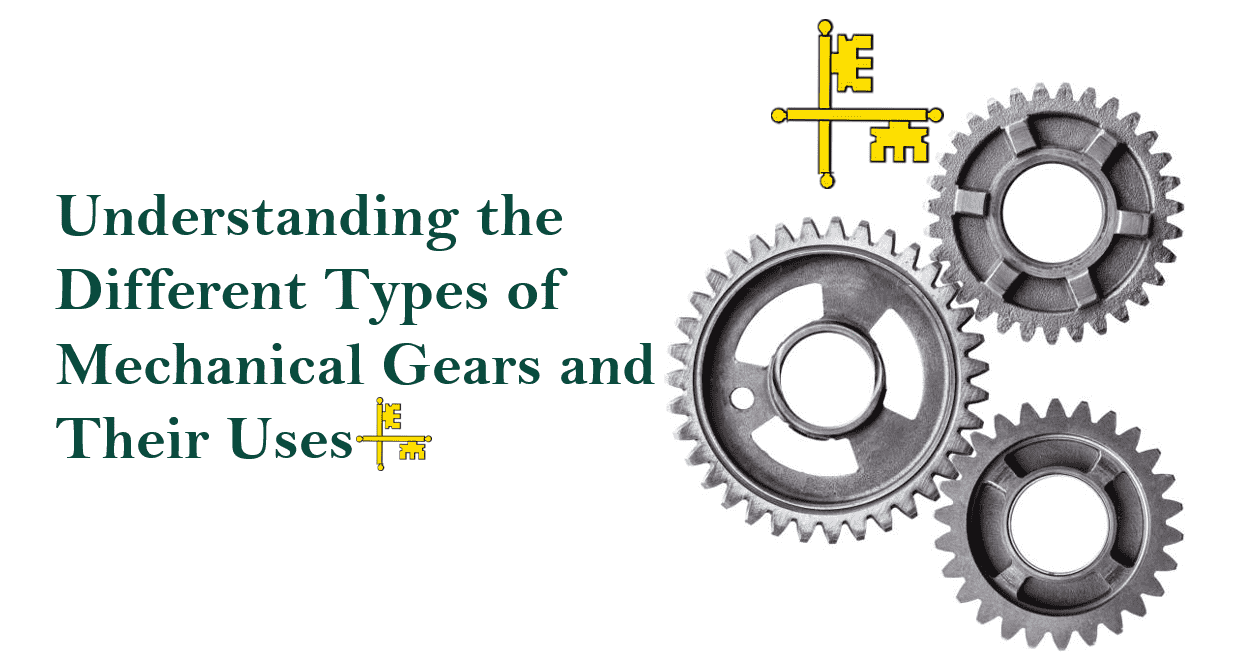Why Precision Gears Matter in Industrial Automation

Why Precision Gears Matter in Industrial Automation
Industrial automation has revolutionized manufacturing, enabling unprecedented levels of efficiency, speed, and reliability in production processes. At the heart of this transformation are precision gears, critical components responsible for transmitting power, controlling motion, and ensuring seamless operations in machinery. As industries increasingly adopt automation to meet growing demands for productivity and sustainability, the role of precision gears becomes even more vital. This article explores why precision gears are indispensable in industrial automation, supported by industry statistics, and highlights Filium Enterprises—a leading supplier of high-performance precision gears that empower modern factories.
The Role of Precision Gears in Industrial Automation
Gears are the backbone of mechanical systems, converting energy into motion and torque to drive machinery. In automated environments, precision gears must operate flawlessly under high loads, variable speeds, and continuous use. Applications range from robotic arms in assembly lines to conveyor systems in logistics and CNC machines in metalworking. Any imperfection in gear design or manufacturing can lead to system failures, costly downtime, or product defects. Precision gears mitigate these risks by ensuring accurate power transmission, minimal energy loss, and extended equipment lifespans.
The Importance of Precision: Key Factors
1. Efficiency and Energy Savings
Precision gears are engineered to minimize friction and backlash, optimizing energy use. A 2023 study by MarketsandMarkets revealed that industrial automation systems using precision gears achieve up to 25% higher energy efficiency compared to those with standard gears. This translates to significant cost savings, particularly in energy-intensive sectors like automotive manufacturing.
Filium Enterprises addresses this need with gears featuring advanced coatings and ultra-precise tooth profiles. Their products reduce energy consumption by up to 30%, aligning with global sustainability goals.
2. Reliability and Durability
Industrial automation systems often operate 24/7, requiring components that withstand extreme conditions. Precision gears made from high-grade materials like hardened steel or ceramics endure stress without degrading. According to a report by Grand View Research, manufacturers using precision gears report 40% less unplanned downtime annually, saving an average of $200,000 per facility.
Filium’s gears, tested under ISO 1328 standards, boast a 99.8% operational reliability rate, making them a trusted choice for mission-critical applications.
3. Precision and Accuracy
In robotics and CNC machining, positional accuracy is paramount. Even micron-level deviations in gear teeth can compromise product quality. Precision gears ensure repeatable motion control, enabling tasks like micro-welding or laser cutting with tolerances under 0.001mm.
Filium’s proprietary manufacturing process, which includes computer-controlled grinding and real-time quality monitoring, guarantees gear accuracy within 1 arc-minute. This precision supports industries like aerospace, where part consistency is non-negotiable.
4. Noise and Vibration Reduction
Excessive noise and vibration signal inefficiency and accelerate wear. Precision gears maintain tight meshing, reducing operational noise by up to 15 decibels. A case study in the packaging industry showed that Filium’s low-vibration gears decreased equipment noise pollution by 40%, enhancing worker comfort and compliance with OSHA standards.
Statistics Highlighting the Impact of Precision Gears
- The global industrial automation market, valued at $214 billion in 2023, is projected to reach $395 billion by 2030, with precision gears being a key driver (Fortune Business Insights).
- A McKinsey analysis found that manufacturers using precision gears achieve 20–30% faster production cycles and 15% lower maintenance costs.
- The gear manufacturing market itself is expected to grow at a 4.5% CAGR, surpassing $280 billion by 2030 (Allied Market Research).
Filium Enterprises: Leading the Precision Gear Revolution
Filium Enterprises has emerged as a global leader in precision gear technology, serving industries such as automotive, pharmaceuticals, and renewable energy. Their flagship product line, Filium UltraGear™, combines cutting-edge materials science with AI-driven design optimization. Key innovations include:
- Zero-Backlash Gears: Ensuring seamless motion transfer in robotic systems.
- Hybrid Polymer-Steel Gears: Reducing weight while maintaining strength for aerospace applications.
- IoT-Enabled Smart Gears: Embedded sensors monitor wear in real time, predicting maintenance needs.
With a 20% market share in Europe and Asia, Filium’s solutions have helped over 500 clients reduce downtime by 35% and energy costs by 25%. A notable example is a German automotive plant that saw a 40% productivity boost after integrating Filium gears into its assembly robots.
Conclusion
Precision gears are the unsung heroes of industrial automation, enabling advancements that redefine productivity and sustainability. As industries push toward smarter, faster, and greener manufacturing, the demand for high-quality gears will only intensify. Filium Enterprises stands at the forefront of this evolution, delivering innovative solutions that empower businesses to thrive in a competitive landscape. Investing in precision gears isn’t just about upgrading machinery—it’s about securing a future where automation drives progress without compromise.
By prioritizing precision, industries can achieve unparalleled efficiency, reliability, and growth. With partners like Filium Enterprises, that future is already here.






